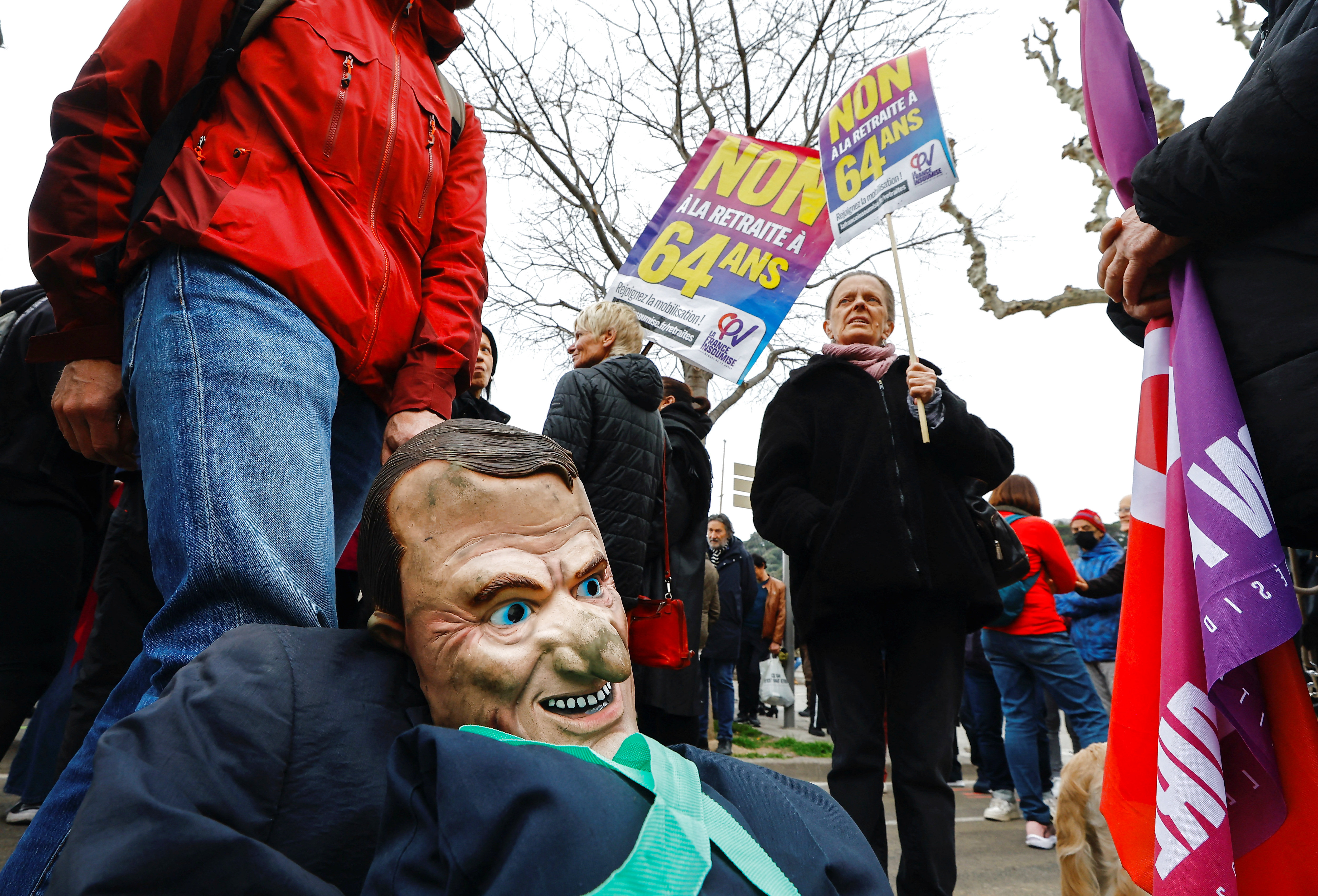
views
French Prime Minister Elisabeth Borne on Monday faces two motions of no confidence in the National Assembly lower house, after forcing through an unpopular pension reform last week without a vote.
While her allies in President Emmanuel Macron’s camp have the largest number of MPs, they do not control an absolute majority in the chamber — meaning they could be defeated if the entire opposition unites in one of the ballots, set for debate from 4 pm (1500 GMT). But few observers believe the opposition can muster the numbers to topple the government.
“Let’s get clarity. The vote means clarity,” Aurore Berge, chief of the pro-government MPs, told broadcaster Franceinfo Sunday. “It’s about one sole question: is the pension reform indispensable or unbearable for the French public?”
Macron’s widely disliked campaign pledge to raise the retirement age from 62 to 64 — extending the number of years people must pay into the system to receive a full pension — was passed on Thursday using the French constitution’s Article 49.3.
News18 Explains the Pension Reform and Why It Was Disliked in France:
First, a Look at the Challenge Macron Faces
Macron had hoped his push to raise the retirement age from 62 to 64 would cement his legacy as the president who transformed France’s economy for the 21st century. Instead, he finds his leadership contested, both in parliament and on the streets of major cities.
His brazen move to force a pension reform bill through without a vote has infuriated the political opposition and could hamper his government’s ability to pass legislation for the remaining four years of his term.
Demonstrators hoisted the parody photo at protests after Macron chose at the last minute Thursday to invoke the government’s constitutional power to pass the bill without a vote at the National Assembly.
In his first public comment on the issue since then, the 45-year-old leader expressed his wish for the bill to “reach the end of its democratic path in an atmosphere of respect for everyone,” according to a statement Sunday from his office provided to The Associated Press.

Since becoming president in 2017, Macron often has been accused of arrogance and being out of touch. Perceived as “the president of the rich,” he stirred resentment for telling a jobless man he only needed to “cross the street” to find work and by suggesting some French workers were “lazy.”
Now, Macron’s government has alienated citizens “for a long time” to come by using the special authority it has under Article 49.3 of the French Constitution to impose a widely unpopular change, said Brice Teinturier, deputy director general of the Ipsos poll institute.
Why Did the Public Hate the Reform?
The pension system is regarded as the bedrock of the country’s beloved social protection paradigm, explains a report by the Guardian.
Unlike the UK’s market-led system, France has a pension system treasured for what politicians call “generational solidarity,” in which the working population pays mandatory payroll costs to fund those in retirement. Every French worker receives a public pension.

France has the lowest qualifying age for a state pension among the major European nations and contributes significantly to the system. Nonetheless, the active working population pays significant payroll taxes and sees fair pensions as the foundation of how society should function.
Every French president in the last 40 years has changed the retirement regulations in some fashion, generally causing outrage in the polls and mass protests.
What Does the Govt Say?
The government says its pension changes are needed to avoid crippling deficits in the coming decades linked to France’s ageing population.
“Those among us who are able will gradually need to work more to finance our social model, which is one of the most generous in the world,” Finance Minister Bruno Le Maire said Sunday.
Opponents of the reform say it places an unfair burden on low earners, women and people doing physically wearing jobs. Opinion polls have consistently showed majorities opposed to the changes.
Thursday’s adoption of the pension reform triggered spontaneous demonstrations in Paris and other major French cities, which in some instances descended into clashes with police. 169 people were arrested nationwide on Saturday during such protests, including one that assembled 4,000 in the capital.
Strikes, including by oil refinery workers and Paris rubbish collectors, have continued, with some set to intensify, and another nationwide day of action has been scheduled for Thursday.
Associated Press, AFP contributed to this report
Read all the Latest Explainers here



















Comments
0 comment